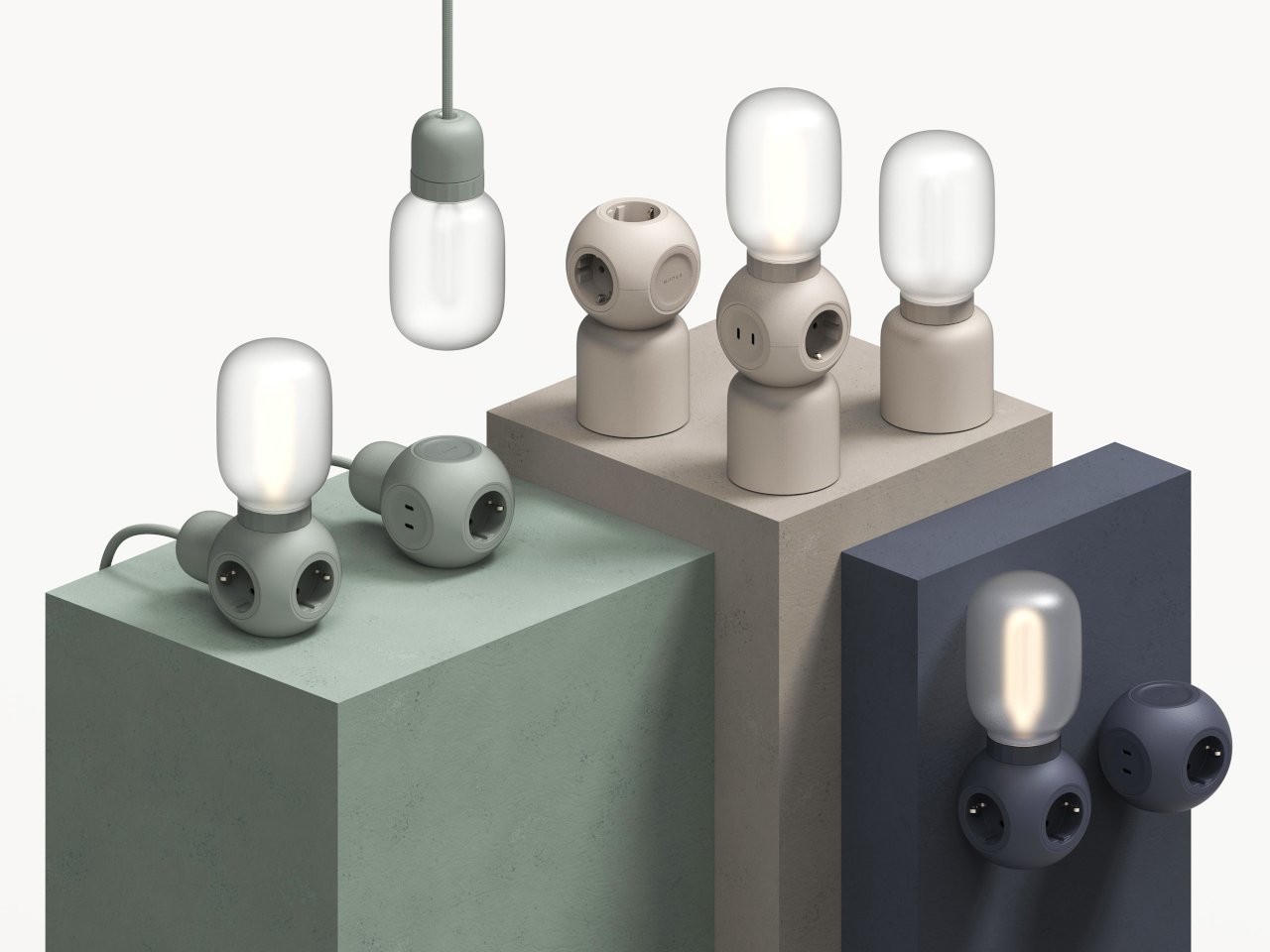Our reliance or even over-dependence on electronic gadgets has seen us fighting over power outlets or going through hoops just to ensure our devices are properly powered and charged. It’s not uncommon for some people to even bring power strips or extension cords with them just to meet the needs of their more mobile lifestyles, whether it’s for work or play.
Useful as they may be, the design of power outlets and strips is outdated, uninspiring, and unable to keep up with the demands and lifestyles of the current generation. This concept design for a modular ecosystem of accessories tries to deliver not only power but also lighting that can adapt to the ever-changing needs of people, whether they’re working at a coffee shop, bunking at a hotel, or simply staying at home.
Designer: Andrea Mangone
There’s no hard rule that says power strips need to be long boxes. It just happens to be the most efficient shape for cramming power outlets without plugs getting in the way of each other. Efficiency doesn’t always translate to effectiveness, however, especially when there’s not only wasted space but also wasted potential in how we can best utilize these power sources. After all, you can’t expand or shorten a power strip beyond its original size, nor can you even stick it to a wall temporarily for a vertical arrangement.
NODES is a concept for a set of modular power accessories that tries to change the way we interact with outlets and sockets. At the heart of this system is the power strip module that looks nothing like a traditional power strip. It’s almost spherical in shape but has flattened sides and a plug sticking out from one side. The other three sides have AC outlets, while one side has two USB-C ports, covering most outlet needs. The plug can be directly connected to a power socket, an extension cord, or, as we’ll see later, the battery module. Although not explicitly stated, it might be possible to daisy chain these spheres to expand the number of outlets.
Another part of the system is the light module, which is basically a light bulb with a plug. The textured dial at the bottom of the diffuser acts both as an on/off switch as well as a dimmer, offering a direct and tactile method of controlling the light. Its simple design makes it trivial to have a bedside night lamp wherever you’ll be staying, or a makeshift desk lamp for working while glamping.
Last but not least is a tall dome-shaped battery module, offering single-outlet access to a 20,000 mAh battery. It’s perfect for turning the light module into a temporary table lamp, and you can get around the outlet limitation by plugging in the power strip module first. With just these three modules, the NODES system can already expand and cover the needs of most people today while still leaving room for future designs that will cater to specific needs and use cases.
The post Modular power strip concept offers a flexible upgrade to power and lighting needs first appeared on Yanko Design.

